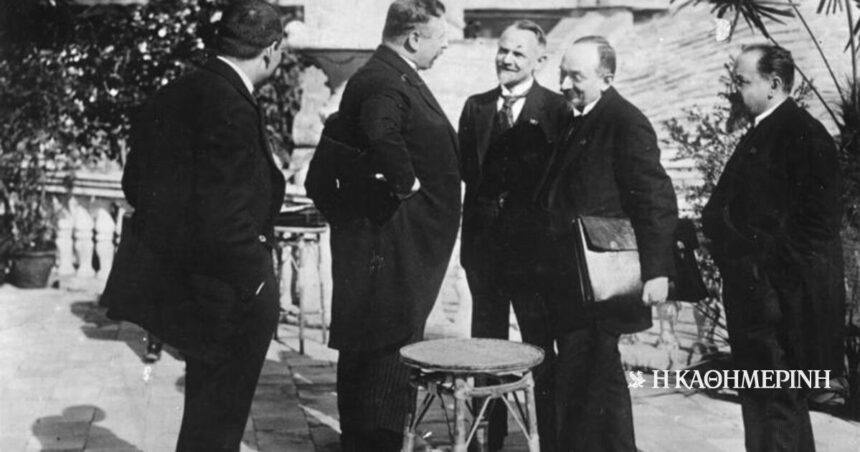At five on the morning of November 11, 1918, in a railway wagon in the Komben Forest, north of Paristhe text of the truce was signed between the war forces of World War I. After four whole years, countless dead and huge disasters, the Great War, for which everyone initially thought it would be short, “The war that would put an end to all wars“, It has come to an end, but having destroyed an entire European generation.
The Paris Conference began its work on January 18, 1919. A total of 32 state representatives took part, while the leaders of the victorious forces were central: Georges Clemann of France, the Luund Georg of the UK, the Woodrow Wilson of the US and the Vittorio Orlando of Italy. In June 1919 the Paris Peace Treaty was signed, the terms of which were largely imposed by France’s strong desire to punish Germany as responsible for the outbreak of war.
To France Returned the areas of Alsace and Lorraine, which had been annexed by the Germany After the defeat of the French in the war of 1870-1871. In addition, the French occupied the military areas of Saar in order to exploit the rich mines of the area for at least 15 years. The German army had to be drastically restricted while Germany was obliged to pay the winners as a compensation of the amount of 132 billion gold marks. A number of other arrangements – all against Germany – clearly showed the mood of the Antads’ allies to punish the German nation.
Germany has entered the financial crisis, resulting in its parliamentary institutions.
The unbearable terms of the treaty signed in Versailles undermined the Republic in Germany from the outset. Soon after the signing of the Treaty, the German government informed that was unable to observe the timetable which had been decided on the payment of compensation because of the dramatic retreat of the value of the German Mark. The country entered the financial crisis, the main features of which was permanently deficit budget and the ever -increasing deficit of current transactions. The crisis in the economy has, of course, shaken parliamentary institutions in the country.
As the USA They were pushing the Antad allies to repay their war loans, the latter, especially the French, seemed even more determined not to retreat to the German demands to regulate compensation. In January 1923, French and Belgian troops occupied Ruhr’s Rich Valleywhich endorsed the crisis in Germany, giving demagogues the opportunity to say that it was another blow to the selfishness of the Germans.
In the meantime, Germany was looking for a way out of isolation and marginalization in Europe. On the sidelines of the Genoa Conference, Germany signed with the Soviet Union on April 16, 1922 the Rapallo Treatywith which the two countries ended the differences between them. In exchange for the provision of logistical support, the Soviet Union It helped Germany avoid some of the military terms of the 1919 Treaty. Germany recognized the Soviet regime and provided technical assistance to the Soviet army. In turn, the Soviets officially expressed their refusal to receive the German allowances they were entitled to. Two months after the Treaty has been argued, the orchestrator of the approach with Moscow, German Foreign Minister Walter Rateu It was assassinated by extreme elements of German society.
Column: Myrto Katsigera, Vassilis Minakakis, Antigoni-Despina Poumenidou, Athanasios Syroplakis






